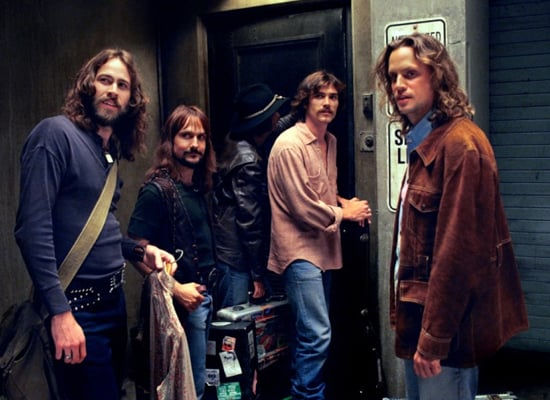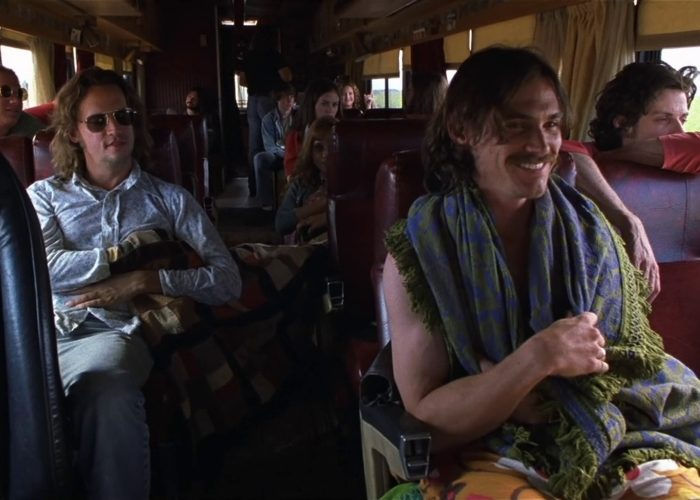“You Are Home”: Celebrating Almost Famous Twenty Years Later
- Roots Magazine
- Sep 15, 2020
- 4 min read

An Oscar winning screenplay, a Grammy winning soundtrack, with the cast and crew that pulled it all off. Almost Famous is the type of film that comes around once or twice a decade. The encapsulation of a bygone era that is more than simple nostalgia. Almost Famous did for the 70s what George Lucas' American Graffiti did for the 50s. The similarities between the two films go beyond style. The respective casts had actors that would go on to further acclaim in the following decades. For Graffiti, it was Ron Howard and Harrison Ford. For Almost Famous there was Frances McDormand, Philip Seymour Hoffman, Kate Hudson, Jason Lee, Zooey Deschanel, and Billy Crudup. McDormend and Hoffman being the most well known, would both win critical acclaimed for Oscar winning performances in the 2000s and 2010s. The smaller roles are populated with actors that would become pop culture staples in the 2000s. Jimmy Fallon plays a neurotic manager, Anna Paquin plays one of the Band-Aids, Marc Maron as an irate concert promoter, and Rainn Wilson as a staff member of Rolling Stone.

To understand the significance of Almost Famous, we must examine its chief creative force, Cameron Crowe. At this point in his career, Crowe had successfully transitioned from teenage rock critic to screenwriter, to award-winning director. Say Anything and Singles illustrated his ability to create well-realized characters, but it was Jerry Maguire that cemented him as one of Hollywood's best directors. After being nominated for several Oscars, and winning Best Supporting Actor for Cuba Gooding Jr, Crowe leveraged his success to put his long-gestating passion project into motion. Instead of returning to Columbia Pictures, Crowe decided to make the film at DreamWorks, an upstart venture from Steven Spielberg, David Geffen, and Jeffrey Katzenberg. Columbia co-financed the film, and took overseas distribution.
DreamWorks prided itself as being a haven for artists, a studio that did not operate like a studio. This was in all honesty, simple hype. DreamWorks track record up to this point was good, but not spectacular. The biggest hit for the studio was Steven Spielberg's Saving Private Ryan (1998), which lost Best Picture to Miramax's Shakespeare in Love. DreamWorks stole the crown with Sam Mendez' debut American Beauty (1999(. This context is important to understand why Almost Famous did not garner as much box office or award season wins as maybe it should have. DreamWorks was more focused on promoting Ridley Scott's Roman epic Gladiator.

What makes Almost Famous great is an earnest love for music, and an unabashed embrace of the positive and negative aspects of the music business. The film is not afraid to poke fun at the absurdity of the rock and roll excesses of the time, (which mainly come from Jimmy Fallon) but Crowe also peppers the film with dramatic character moments which support the rest of the movie. The film does not lean on the period to prop up the story, but instead exploits it. Still Water is a composite of bands Crowe toured with, including the Allman Brothers and Led Zeppelin. Jason Lee's character is over the top to the point of caricature, but even the lead singer has a moment of insight when discussing music. It's this sense of looking into a world that only a certain few had seen that gives Almost Famous its intimacy. Crowe took the untouchable nature of classic rock and made it relatable to an audience. As a high profile music fan, Crowe mixed the reality of a touring band with romance and themes of maturity, integrity, and honesty. In the words of Hoffman's Lester Bangs, “The best thing I can tell you is to be honest and unmerciful.”

What makes Almost Famous so entertaining is not only the well rounded characters, great script, and classic soundtrack, but the feeling that this one is for the fans. Although Crowe had amassed a streak of critically acclaimed films, he didn't make a movie that was formulaic or familiar in any way. Even though Crowe interviewed and lived with iconic bands of this era, the character of William Miller is that of a genuine fan, eager to experience part of the lives of the musicians he admires. Crowe states this to the audience when William meets Still Water: “We play for the fans, not critics.” By the end of the film Lester Bangs' wisdom rings true, as William must put aside his love of music to write an article that is true to himself. One can easily see Bangs' views as an extension of Crowe in the present, whereas William is Crowe as a novice, unaware of the pitfalls of life on the road or the exploitative nature of the music business.

The making of the film was not without conflict, as Crowe battled DreamWorks over the run time of the movie. After watching the nearly three hour initial edit, Steven Spielberg said “Don't let them touch a thing.” This was a seemingly hollow gesture of support, as Spielberg was nowhere to be seen when Crowe was mandated to cut the film down to two hours. This theatrical version is tighter, but the lengthier Bootleg Cut (as it has been entitled) allows the movie to breathe, giving more characterization to Penny Lane and Still Water, and extending the scenes of the band on tour, which allows the audience to feel as though they are watching a document of a band that could have been.
Written by Garrett Kearns











Comments